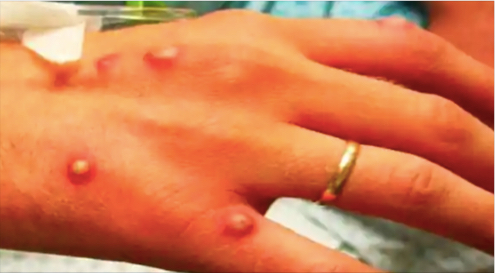
STRATEGIC ASSESSMENT- European summer festivals should not be cancelled due to the monkeypox outbreak but should instead manage the risk of amplifying the virus. A surge of monkeypox cases has been detected since May outside of the West and Central African countries where the disease has long been endemic. Most of the new cases have been in Western Europe.
More than 3,200 confirmed cases and one death have now been reported to the WHO from 48 countries in total this year. “We have all the summer festivals, concerts and many other events just starting in the northern hemisphere,” Amaia Artazcoz, the WHO’s mass gatherings technical officer, told a webinar entitled “Monkeypox outbreak and mass gatherings: Protecting yourself at festivals and parties”.
The events “may represent a conducive environment for transmission”, she said. “These gatherings have really close proximity and usually for a prolonged period of time, and also a lot of frequent interactions among people,” Artazcoz explained.
“Nevertheless… we are not recommending postponing or cancelling any of the events in the areas where monkeypox cases have been identified.” Sarah Tyler, the senior communications consultant on health emergencies at WHO Europe, said there were going to be more than 800 festivals in the region, bringing together hundreds of thousands of people from different countries.
“Most attendees are highly mobile and sexually active and a number of them will have intimate skin-to-skin contact at or around these events,” she said.
“Some may also have multiple sexual contacts, including new or anonymous partners. Without action, we risk seeing a surge in monkeypox cases in Europe this summer.”
The UN health agency recommends that countries identify events most likely to be associated with the risk of monkeypox transmission.
The WHO urged festival organisers to raise awareness through effective communication, detect cases early, stop transmission and protect people at risk.
The outbreak in newly-affected countries is primarily among men who have sex with men, and who have reported recent sex with new or multiple partners, according to the WHO.
People with symptoms are advised to avoid attending gatherings, while people in communities among whom monkeypox has been found to occur more frequently than in the general population should exercise particular caution, it says.
The normal initial symptoms of monkeypox include a high fever, swollen lymph nodes and a blistery chickenpox-like rash. Meg Doherty, from the global HIV, hepatitis and sexually-transmitted infection programmes at WHO, said: “We are not calling this a sexually-transmitted infection.
“Stigmatising never helps in a disease outbreak,” she added. “This is not a gay disease. However, we want people to be aware of what the risks are.”
Authorities in the USA have announced the end of the Covid-testing requirement for arrivals from Europe
STRATEGIC ASSESSMENT. Most of Europe had dropped the testing requirement for fully-vaccinated arrivals in the spring, but the US has maintained the requirement to show proof of a negative test for all arrivals.
However on Friday, the Biden administration announced that it would not renew the testing requirement. The new rule is expected to come into effect at 12.01 Sunday EDT, until then passengers will still need to show a negative Covid test before they can board a plane to the US.
The US currently bars unvaccinated travellers from entry – although this does not apply to US citizens, US residents or those travelling for essential reasons – there was no announcement on lifting this restriction.
The CDC said that testing requirements could be reinstated if new variants of Covid emerge, and added that it continues to recommend pre-travel testing.
Covid travel rules vary between individual countries in Europe, but most countries now only require pre-departure tests for unvaccinated travellers. Check the rules of the country you are travelling to for full details.





